|
Hailing from the graduating class of 2016, Chai Duwei is currently based in Singapore as a Product Policy Manager in TikTok Pte Ltd, a titan in the social networking industry. Walking outside the path of conventional legal practice, he has passed through several other organisations previously, such as Robert Bosch (Southeast Asia) Pte Ltd (‘Bosch’), Shopee Malaysia (‘Shopee’), and the Cultural Economy Development Agency Malaysia (‘CENDANA’). Just last year, he has obtained a Master in Public Policy from the coveted Lee Kuan Yew School of Public Policy (‘LKYSPP’). In his journey, he and his team also secured the Audience Award in the Global Public Policy Network (‘GPPN’) Conference after intense competition with the crème de la crème from other globally renowned public policy schools. ‘The definition of success. It really depends on the individual, right? Everybody charts their own path.’ His journey was one of overcoming trials, as life appeared adamant about tossing lemons his way. Owing to his mother’s health condition, Duwei relocated to Kuala Lumpur from his childhood home in Johor at the tender age of 15. Before that, he had to accompany her on fortnightly travels by bus or coach for her medical reports from the country’s capital. With tints of fondness and gratitude, Duwei recalled how his mother had single-handedly raised him with an abundance of love and sage advice. When he is not devising policies, Duwei can be found playing soccer or badminton, if not in the occasional search of good nasi lemak. From our exchange, it is clear that his persevering pursuit for the next big thing keeps him going in this fast-paced industry! Duwei with his team members at the Global Public Policy Network Conference 2021 How did you land the position as a Trust & Safety Professional at TikTok? Tell us more about your day-to-day operations. ‘I had my fair share of concerns before joining TikTok, especially on the possible “996 working culture”. To my surprise, the employers do their best to ensure that we have work-life balance.’ A recruiter from TikTok had reached out to Duwei while he was still acquainted with Bosch. Following an exploratory call, his profile matched a possible placement in the company to craft and implement content policies. Given the perfect match, the rest was history. When asked to describe his job at the powerhouse app, Duwei began by explaining the influx of content following the growing userbase. This evolved into a double-edged sword as most content creators devise imaginative ways to get their intended messages across. It became his job to draw and define red lines around unsuitable materials on the platform by laying down clear policies and guidelines. While TikTok values the creators’ freedom of expression, it is paramount to ensure that the platform remains safe for the wider community — mainly when it involves baselines such as minor safety, suicide, and self-harm, as well as fake news or mis/disinformation. In the process, Duwei and his team engage subject matter experts to ensure sound and robust interpretation of policies in compliance with global standards and best practices. The need for clear policies and community guidelines arises even more given the wide room left for diverging interpretation when foreign laws are involved. Given that policies are perpetually in need of progress, it is also continuously fine-tuned — particularly so when there is a growing amount of content and information that may contravene community guidelines. Prior to TikTok, you have worked at Bosch in External Affairs & Government Relations. How are they different from one another? ‘Even from the name of it, my time with Bosch was more external-facing in comparison to my time with TikTok, as I would work with different internal cross-functional stakeholders.’ Duwei recounts his experience with the multinational German company and found it vastly different from his current endeavour, as it mainly deals with managing stakeholder relationships with governmental agencies, business chambers, and various business partners. During his time with Bosch, he interfaced closely with various Singaporean ministries, particularly the Ministry of Transport. There, the goal was to pursue the company’s business interests in attaining the best possible outcome for its business portfolios — ranging from Internet of Things (‘IoT’) solutions, power tools, and electric vehicles. With the recent focus on electric vehicles (‘EVs’) in Singapore, Duwei and his team co-developed advocacy strategies and consulted governmental agencies to ensure compliance with the government’s policies. In Europe, the governments’ green policies and tax incentives have immensely smoothened the transition. However, in Southeast Asia, the high cost of technology and low fossil fuel price provide more reasons to stick to the status quo. By reforming existing policies, the proposed implementation for EVs would also see an increase in foreign direct investments for Singapore. With Singapore utilised as a pilot testbed to kickstart the domino effect in the region, Duwei’s placement in the island city-state was then a significant one. Duwei’s time at Bosch allowed him to have a more global outlook on policymaking In your opinion, how does policymaking inspire change in institutions, societies, and corporations? ‘Since policies are present in various sectors, it helps set out how, for example, a country can work well.’ For those interested in policymaking, Duwei explained that its scope could go beyond the public sector into the vastly diversified private sector. The former generally accounts for economic, social, and welfare-centred policies required for the nation to function well. On the other hand, the latter diverges because it concerns how industry players can lobby for business-friendly policies whilst balancing the government’s interest. In this vein, Duwei dived into his experience at Shopee Malaysia. Pioneering the Public Policy and Government Affairs team, Duwei joined at a critical time in 2020, shortly after the announcement of the Movement Control Order (‘MCO’). Since e-commerce did not fall under the umbrella of ‘essential services’, this had adversely affected online shopping platforms and their vendors. Within half a year, Duwei and his team had successfully presented to the government that e-commerce platforms offering door-to-door delivery services should constitute essential services to reduce overall movement and contact. In fact, failure to do so would be counter-productive to the government’s goals, as the public would flock to confined spaces for their everyday items. Eventually, the government warmed up to the idea and e-commerce sky-rocketed during the pandemic! Another impressive feat accomplished by Duwei and his team was the integration of Small and Medium Enterprises (‘SMEs’) and micro-SMEs into the platform, more so with the traditional brick-and-mortar slowly ceasing in plausibility. With the government investing in the transition of local businesses into Shopee, the assiduous team proposed that the company utilise such funds entirely for vouchers and promotions. This was the critical ingredient to the platform’s continued provision of vouchers throughout the MCO. Precise timing came into play once again when the MCO was relaxed for interstate travel, where Duwei then helped set up a meeting between the Shopee team and his former Perdana Fellowship mentor, YB Dato’ Sri Hajah Nancy Shukri, the Minister of Tourism, Arts and Culture (‘MOTAC’). Their exchange was indeed fruitful, as it helped to boost the tourism industry — particularly after the MCO’s devastating blow. At this juncture, Duwei stressed the importance of relationship building. He added that every bond forged should be nurtured. Indeed, their mentor-mentee relationship had provided him with an avenue to pitch proposals and ideas. Eventually, it led to Shopee’s partnership with MOTAC — providing discount vouchers for hotel bookings to encourage Malaysians to travel and spend domestically to revive the country’s economy. ‘Sometimes you never really know where good relationships you make will land you.’ Duwei is also proud that the team’s advocacy through policymaking was acknowledged through the allocation for e-commerce players in the previous National Budgets. This ripple effect reflects the government’s openness to fresh ideas. Duwei and his colleagues at Shopee Malaysia How did you make the career jump from legal practice? ‘It was not so much of a push factor, but at that point, I knew that I could not miss the opportunity of trying something different with policymaking.’ After graduating from Universiti Malaya (‘UM’), Duwei worked with Shearn Delamore & Co. Soon after, a senior from law school reached out to him for an in-house position with a government agency, CENDANA. He thought of it as the best opportunity to test new waters, as he did not have other familial commitments at the time. After his beloved mother’s passing in 2013, he was left to decide for himself. Otherwise, things would have panned out differently, as he prefers to be closer to home. Duwei opined that while many may feel sucked into a profession due to their environment and peer pressure, they need to be bold enough to take stock of things. Nonetheless, in considering the different paths everyone is bound to take on, he conceded that this way of life might not be applicable for everyone. ‘If the legal profession is not for you, you can then say, “I have been there, I have done that, but let me put a pause on it”. If all things go south, at least I can tell myself I have tried something else and return to practice.’ CENDANA then became Duwei’s first step into the vocation of policymaking. There, he promoted the interest of the arts and culture industry. For example, international artists prefer to host their concerts in neighbouring cities, such as Singapore, Bangkok, or Jakarta, due to their industry-friendly policies. He illuminated that these artists often think twice before performing in Malaysia, as concert organisers are subjected to stringent application requirements and moral policing. To address this, Duwei’s team at CENDANA worked closely with industry players to co-develop industry-friendly policies to streamline processes that will prevent irregularities in the live events industry. Such an initiative would have benefited the country, given the potential spillover revenue that the tourism industry could generate. Besides that, he had the privilege of coordinating workshops alongside the Ministry of Tourism, Arts and Culture on tax deductions for corporate sponsors in the local arts and culture industry. This aligned with his personal belief that cultural-related tax exemptions could encourage the public to invest more, and subsequently sustain Malaysia’s arts scene. ‘We have to communicate to the government that there are things that we have to look beyond the current picture for because there is a spillover effect.’ While catering to the multifaceted interests of different crowds, Duwei finds exhilaration in this line of policy work. The cherry on top would be the ability to attend live concerts featuring Imagine Dragons, Ed Sheeran, and Anderson .Paak! Following his departure from the role and the governmental change in the 14th General Elections, the policy framework fell through — despite the 90 per cent progress and the setup of a Multi-Ministry Task Force. As discouraging as it sounds, Duwei exasperated that this is sometimes the nature of public policymaking. It is utterly dependent on the ethos and political will of the government of the day. He also forewarns these policies, even if accepted, might take years before seeing fruition. CENDANA was Duwei’s starting point in professional policymaking How did your time in LKYSPP cultivate your interest in policymaking? ‘As part of our capstone project, we had to work closely with real-life organisations in coming up with viable policy proposals. That was definitely an interesting experience.’ During his second year at LKYSPP, Duwei and his team had to develop a policy proposal for the Centre for Liveable Cities (‘CLC’), a body under the Ministry of National Development Singapore. The project deliberated the sustainabilityof high technology urban farming in Singapore and was aptly entitled ‘Securing Singapore’s 30-by-30 Goal: Improving the Viability of Controlled-environment Agriculture (‘CEA’) Farms’. As part of the groundwork, more than 30 stakeholders — including farm owners, agencies, industry experts, and investors — were interviewed to unearth their concerns over the viability of high-tech urban farming. Following that, Duwei and his team suggested for the government to absorb part of the farmers’ starting cost by upscaling subsidies, tax exemptions, and demand for local produce. Without government intervention, most farms would either close within five years or be coaxed into selling high-end vegetables to stay afloat. The latter would not be sustainable, as the average Singaporean would not be able to afford them regularly. In fact, non-intervention would be counter-productive to the government’s interest in maintaining the country’s food supply chain. Although it is still too early to tell, Duwei remains hopeful that their proposal will help amplify and advocate the industry players’ concerns to the government. You have published a paper on ‘Muslim Polygamous Marriages in Malaysia: A Legal and Sociological Perspective’ with our publication! What moved you to write on this topic? ‘There used to be a course called Gender and Law. Through that course, I realised that there exist loopholes within state legislations, and it has been holding back women empowerment.’ Duwei uncovers that Muslim women in Malaysia are sometimes placed between a rock and a hard place by Islamic law, given the difficulty for a wife to refuse a polygamous marriage on the part of their husbands and to exit such marriages. The repercussion does not only affect them but the family institution as well. From a social standpoint, an absent father creates a void in both the child’s welfare and their need for affection from a father figure. From a legal perspective, the varying enactments across different states have caused a glaring lack of coordination in terms of women empowerment. In considering the aforementioned, Duwei felt that it was necessary to shed light on the matter. When asked if he was questioning the Islamic practice of polygamy, he unwaveringly answered that it was not his place to question the Scripture or its practices. With that said, we can only advocate for legalistic safeguards to be implemented for the vulnerable when there appears to be unfairness. Duwei has even gone beyond his project paper in discussing religions and the law — serving as a research assistant to Assistant Professor Dr Dian Shah and Assistant Professor Arif Jamal in their publications at the National University of Singapore. ‘As law students, we should not turn a blind eye to the biasness in laws. That way, we can have a more effective mechanism to check and balance existing policies.’ Would you say any of your experiences in law school were significant in inspiring you to take up policymaking? ‘My liking for policymaking started when I was a Perdana Fellow. Specifically, when I was working with YB Dato’ Sri Hajah Nancy Shukri, and a lot of the things I worked on were legally-related.’ Duwei’s virtuoso in this area was polished incidentally through his various endeavours in the faculty. Upon returning from the States for his Global Undergraduate (‘UGRAD’) Exchange Program and the passing of his late mother, Duwei decided to immerse himself in faculty activities. Little did he know, it resulted in him taking up the formidable role of President of the UM Law Society (‘UMLS’) 2014/2015. Rather than dealing with policies, UMLS taught Duwei the communicative art of dealing with stakeholders — the faculty administration and members of the student body. Indeed, Duwei only had his first-hand experience in national governance during the Perdana Fellow Programme 2015. He worked with YB Dato’ Sri Hajah Nancy Shukri, which was the turning point for his liking of policymaking. Subsequently, his interest grew alongside his role as Student Advisor at the University of Malaya Legal Aid Clinic (‘KBGUM’), where he supported legal consultations on various legal issues including contract, employment, and family disputes. He believes that a legal dispute should only be opted for as a last resort, and that laws should not drag people to court over minor incidents. Duwei during his Perdana Fellow days, with mentor YB Dato’ Sri Hajah Nancy Shukri and fellow alumni YB Tuan Syed Saddiq Syed Abdul Rahman You have been with Closing The Gap Malaysia for two years and counting. What kept you going? ‘When I got to know about the programme, I thought it was a very noble effort. Coming from a certain background, I understood how hard it is to gain exposure on future plans, which is why I think having a mentor would go a long way.’ Amidst his busy schedule, Duwei has been a part of Closing The Gap since 2019. The programme is a two-year-long mentorship, aiming to help underprivileged students chart their study paths in the seas of higher education. Duwei was paired with a Form 4 mentee, which reflected his family background. This motivated him to go the extra mile for his mentee because he understood the importance of good education and a steady guiding hand. His effort was not for nothing, as his mentee — even in the face of a pandemic — scored flying colours in his Malaysian Certificate of Education (‘SPM’) and gained admission into an A-levels programme with a full scholarship. Successful in paying it forward, Duwei’s mentee is currently pursuing his studies in the field of Artificial Intelligence. Duwei hopes that those who share a similar upbringing with him would persevere because there are brighter days ahead Any parting words for aspiring law students reading this? ‘UM law students are competitive, and we have what it takes to get the job done.’ Duwei leaves two parting advice. Firstly, as law students, you must put yourself out there and break away from the stereotype that foreign graduates are more competitive. Coming from an underprivileged background, Duwei believes that the mantle falls on us to brave new heights. Secondly, do not undermine yourself by thinking you will always be subpar compared to your international peers. He recalls being reserved and listening quietly to conversations around his foreign-graduate friends, mainly revolving around topics he was not well-versed in. Undeterred, he would return after brushing up on his own readings with fresh points to chip in. Duwei encourages local graduates to boldly put themselves out there because the driving point is to gain exposure and level the playing field. For those yearning for overseas education experience, Duwei highly recommends participating in the Global UGRAD Program. With jest, Duwei also thinks that if there was one thing that law school did not emphasise enough, it would be digital literacy skills, especially on Microsoft Excel and Microsoft PowerPoint. He also highlighted the difference between a legal presentation and a practical work presentation, with the former requiring critical factual analysis and the latter requiring one to sell a story to convince stakeholders. Should such aspects be improved, those seeking to venture beyond legal practice would have an easier transition. On the last note, Duwei wishes to convey his heartfelt thanks to the individuals who have supported him throughout his law school and career journey: his Professors, UMLS Committee Members, the Fellowship, batchmates, faculty staff, individuals who were at odds with him, and everyone that has helped him become a better version of himself. Duwei and the Fellowship, a strong support system during his law school days ‘Lastly, I would really like to sign off with a thank you to my late mother. I think she deserves all the praise and credit, as I would not be where I am if it was not for her guidance.’ Written by Faith Chow.
Edited by Sirhan Sidqi, Ashley Khor, and Ee Jie.
1 Comment
28/6/2022 09:41:52 pm
nks for sha ring the article, and more importantly, your personal experience mindfully using our emotions as data about our inner state and knowing when it’s better to de-escalate by tdcaking a time out are great tools. Appreciate you reading and sharing your story since I can certainly relate and I think others can to
Reply
Leave a Reply. |
Archives
July 2023
Categories
|
|
|
PhoneTel : +603-7967 6511/6512
Fax : +603-7957 3239 |

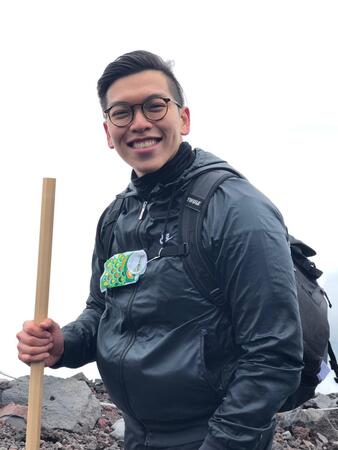
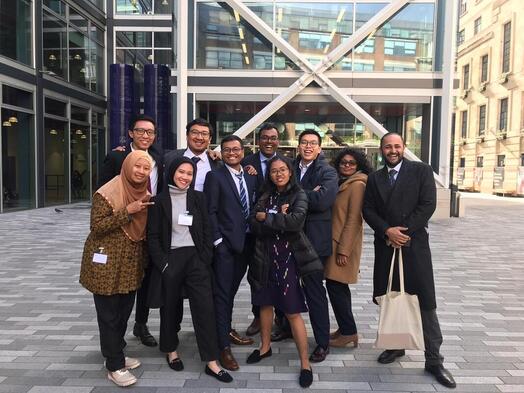
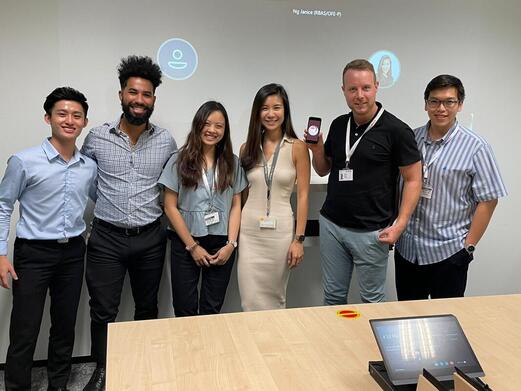
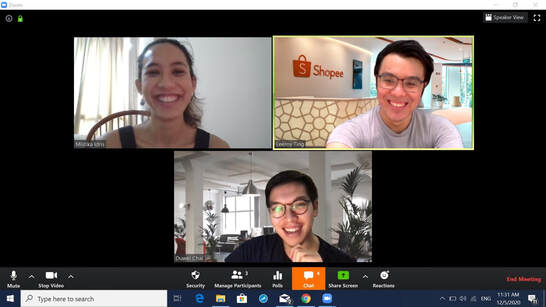
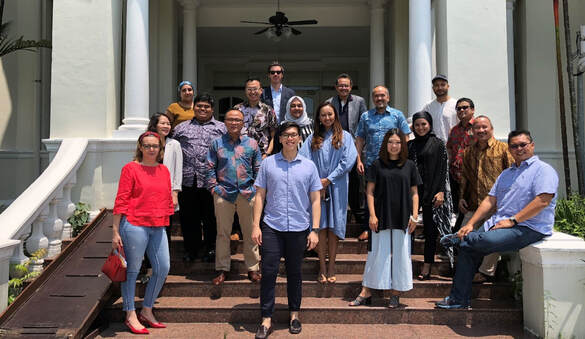
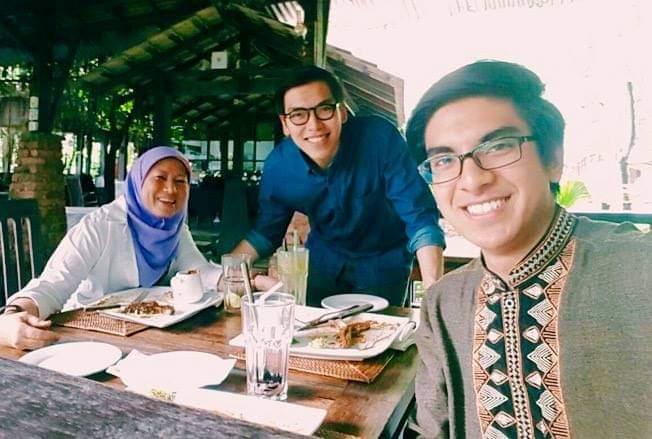
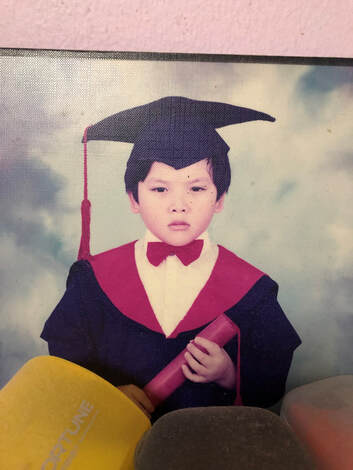
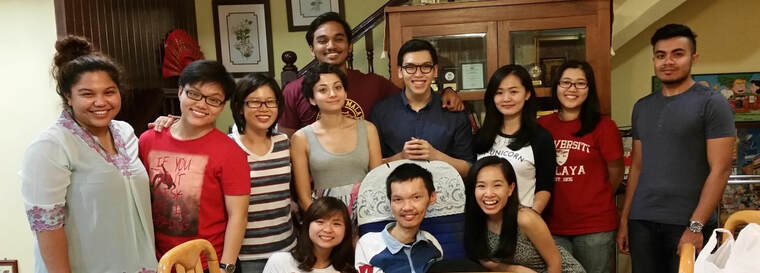
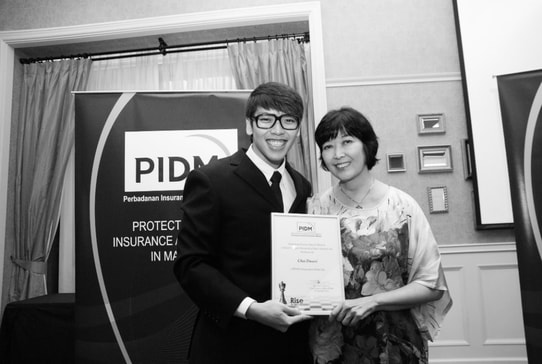
 RSS Feed
RSS Feed